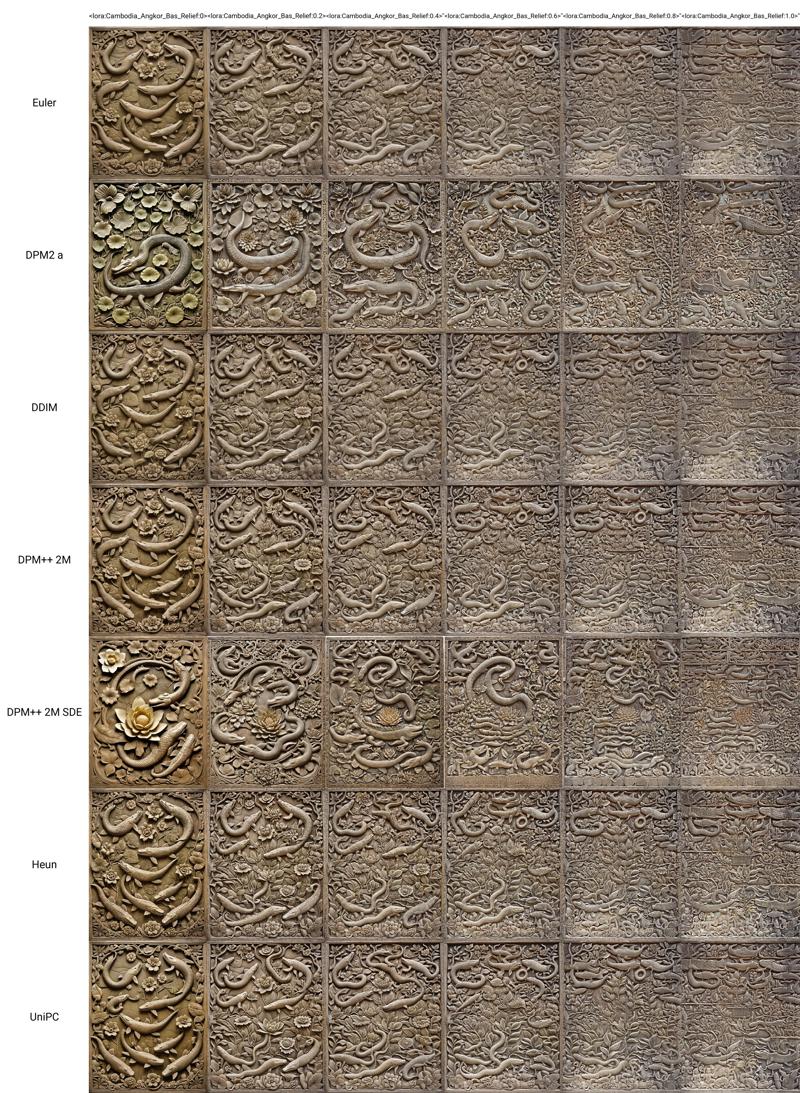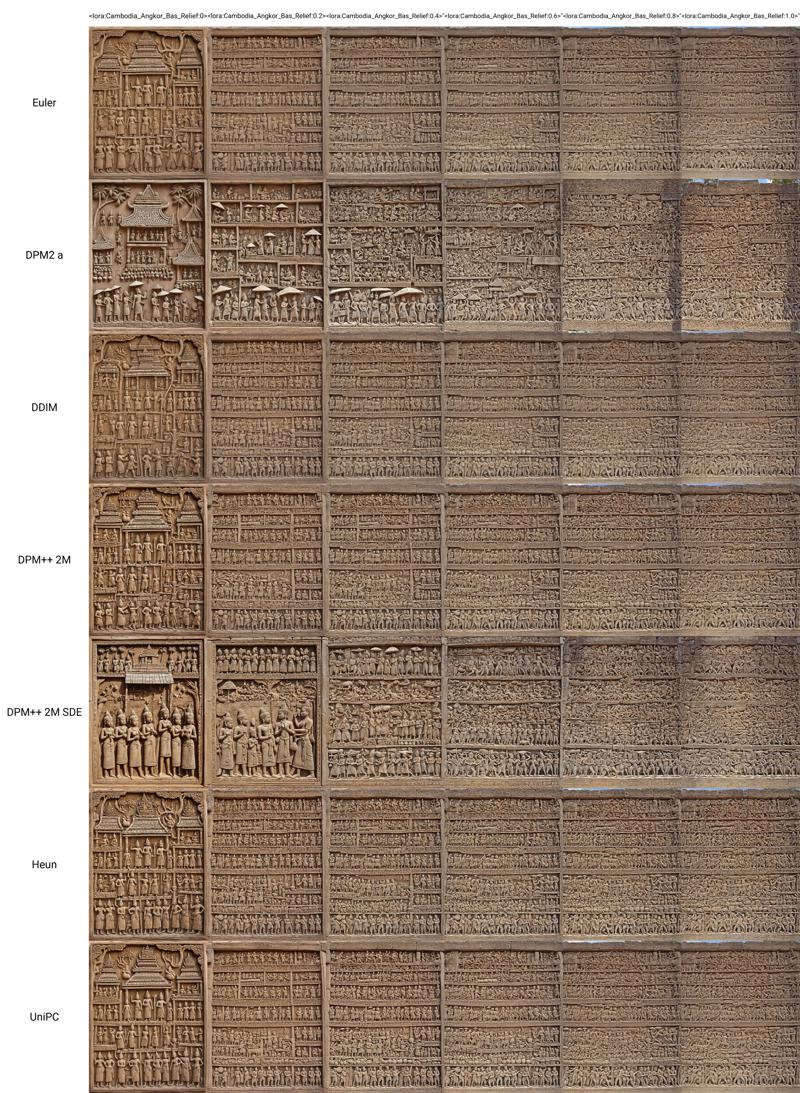This Lora model is trained on photos I had taken of the intricate bas reliefs from the exterior walls of Bayon temple at the center of Angkor Thom complex in Angkor Archaeological Park as well as those still found in remote unrestored Banteay Chmmar (which rivals the famous Angkor Wat in size) near the Thai border - despite their considerable distance apart, both temples are related as a section of a panel depicts a royal procession from Bayon to Banteay Chmmar.
This model is a research experiment to evaluate how Diffusion models perform against atypical image inputs (unlike typical image inputs with a distinct subject and background that are easily tagged, the Angkor bas reliefs are intricate and encompass multiple subjects and compositional perspectives that are difficult to tag), and explore the potential application of Diffusion models in archaeological restoration.
I was inspired at my visit to Banteay Chmmar, where the restoration work was largely undertaken by local villagers due to its remote location. In addition to funding challenges, restoration work also stalled when sections of bas relief are missing (most likely looted). The current way is to appeal to foreign museums who may have pieces or historical photographs of when the bas reliefs were more intact somewhere in their collections and archives. But that is costly and time consuming and requires cross-border co-ordination, which is difficult for the villagers. I think there is uninvestigated potential in utilizing Diffusion models trained on existing bas reliefs (e.g. Inpainting and other techniques) to reconstruct what was potentially there, as a tool in archaeological restoration work.
LoRA weights
Higher weights both shifts the composition towards the "register"-based perspective of the Angkorian bas-reliefs as well as "flattens" contrasty 3D-relief into bas-relief.

As majority of the bas-reliefs depict people, higher weights also introduce more people into the image. This leads to interesting effect where composition of group prompts (e.g. villagers") get more complex with higher weights.

